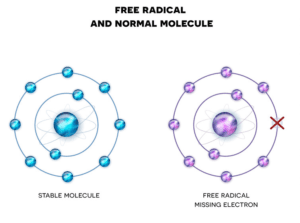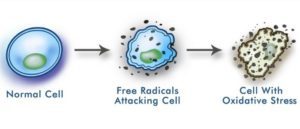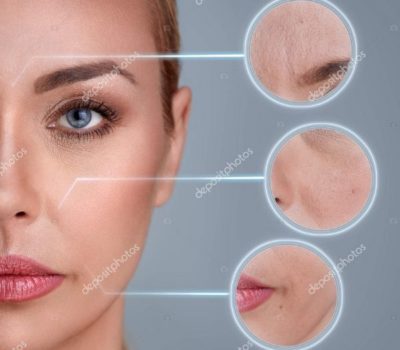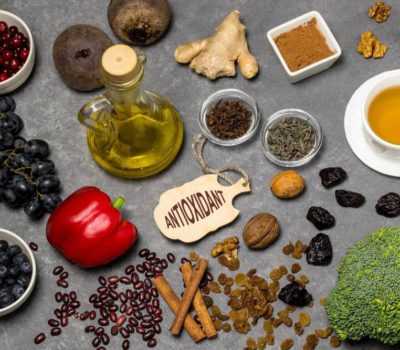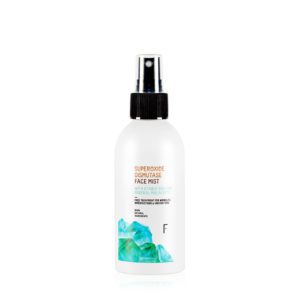Skin Damage Category Triggered Due To Low Skin Oxidation
The antioxidant response is our body’s natural ability to detoxify and counteract harmful agents like ultraviolet (UV) rays, environmental pollutants, and toxins produced by the body.
Oxidative stress (low skin oxidation) occurs when the anti-oxidation response is weakened and is a major factor in skin aging.
How does Oxidation Stress/Low skin oxidation Lead to Aging?
Oxidative stress leads to the breakdown of the collagen that provides structural support to the skin, alters cycles of cell regeneration, and causes DNA damage that triggers skin inflammation.
What are Free Radicals?
The free radical theory of aging hypothesizes that oxygen-derived free radicals are responsible for age-related damage at the cellular and tissue levels. Free radicals are highly reactive short-lived molecules that can damage virtually any molecule in our body – including the important cellular structures found in the body’s largest organ – the skin.
Free radicals damage the growth, development, and survival of cells in the body. Their reactive nature allows them to engage in unnecessary side reactions causing cellular impairment and eventually injury when they are present in disproportionate amounts.
What Role Do Genes Play in Skin Oxidation Response?
Recent scientific studies have revealed several skin-related genetic variations have been found to alter the production of antioxidant-protecting molecules. Genetic variants coding for the antioxidant enzymes including SOD2, GPX1, CAT, and NQO1 have been associated with an increased risk of oxidative stress-induced skin aging or a decreased antioxidation response.
We have developed a robust genetic database for such genes that impact the mode of action of antioxidants in your skin.
How You Can Keep a Check On Radical Damage
GeneHabit’s DNA test identifies genetic variations in your genes that increase your risk of oxidation-led skin aging and ailments. Easy-to-understand personalized reports prepared by skin experts along with their recommendations for natural food and commercial products can help protect your skin from antioxidants.
Natural Antioxidant Supplement: Foods containing antioxidants help to naturally detoxify skin tissue. Such foods include dark chocolate, pecans, blueberry, strawberry, kale, citrus fruits, and many more.
Topical Supplements
Vitamin C (ascorbic acid), vitamin E, alpha-lipoic acid, and niacinamide are the mainstays of topical antioxidant therapy and are components of many creams and serums.

